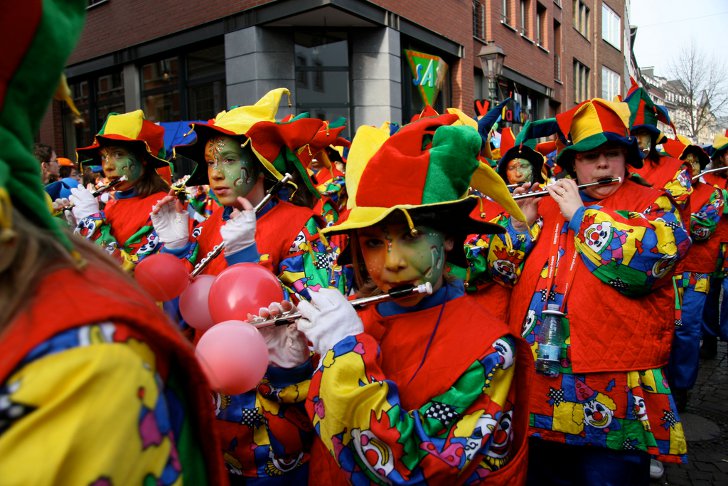Carnival is a Western Christian festive season occurring before Lent. In German-speaking countries the Carnival season traditionally opens on November 11 at 11:11 am, but the main festivities begin a week before Ash Wednesday (the first day of Lent). Germany has two distinct variations of Carnival: the Rhenish Carnival in Western Germany and the Swabian-Alemannic Carnival in Southern Germany. Most famous are carnival celebrations in Cologne, Mainz and Düsseldorf, but the Carnival of Aachen is pretty fabulous too.
The first Carnival Associations were founded in Aachen in the early 19th century. Carnival festivities developed especially strongly during that period since the Rhineland was occupied by Napoleonic France and then by Prussia. The Carnival provided an opportunity to express anti-French and anti-Prussian sentiment through parody and mockery.
The motto of the Aachen Carnival is “Spass an der Freud” (“Have fun with joy in your heart”). The official opening of the Carnival is held on the Thursday before Ash Wednesday. In Rhineland, Carnival Thursday is known as the Women’s Day, but in Aachen it is usually called Fat Thursday. On this day, women cut men’s ties and are allowed to kiss any man who passes their way.
One of the highlights of the Aachen Carnival is the Children’s Parade that takes place on Carnival Sunday. It features colorful floats and thousands of children in bright costumes. The Children’s Parade was first held in 1937 ans has since become an integral part of the festivities.
The Carnival of Aachen culminates on Rose Monday (Rosenmontag) with the Grand Parade. The procession is several miles long and includes over 100 beautifully decorated floats, groups and marching bands. It always features Aachen’s own Carnival figure, a lanky old beggar named Lennet Kann.

Photo: Franz & P




